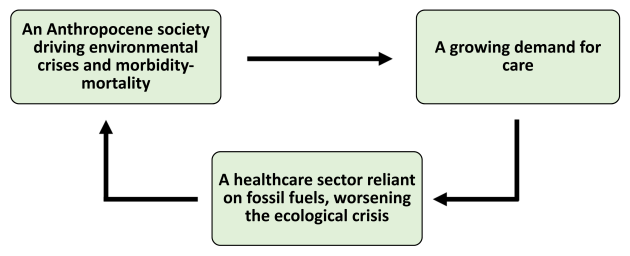Primum non nocere: the paradox of modern medicine
It would therefore seem that we are at the heart of a vicious circle, with an Anthropocene society generating environmental crises and morbidity and mortality. The result will be a growing demand for care and recourse to the healthcare system. As it is conceived and designed today, the healthcare system is responsible for an environmental impact that contributes to the environmental and therefore health crisis.
If we treat one person today at the cost of making others ill tomorrow, healthcare becomes counter-productive. Health is not just a private good, it is also a common good. As medical treatments become increasingly resource-intensive and polluting, there is a growing risk that the damage to public health caused by a treatment will outweigh the individual benefits to the patient.
Thinking about the reduction of their environmental impact is an imperative from which actors and health professionals can no longer avoid the risk of reproducing an ethical and moral pitfall: threatening in the medium or long term the health of a population that they are paradoxically committed to preserve.
The rest of this course will explore the solutions and paths that allow this bifurcation to be carried out in order to reconcile quality of care and environmental sustainability.
